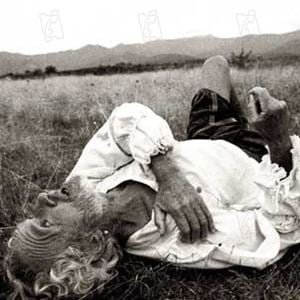

To increase his knowledge of Christian theology, Pablo traveled to Paris, where he studied until 1394 and was ordained a priest. Only the last part of Pablo's reply has been preserved it includes the idea that it is incumbent upon every Jew to delve into the Bible and the Oral Law so as to discern the messianism of Jesus. In a lengthy letter, addressed to Pablo, Lorki asked him the reasons for his decision and expressed fundamental reservations on the messianic role of Jesus. This letter, which was widely circulated, also reached his disciple Joshua Lorki, who was converted some years later. After his conversion, which left a powerful imprint on Jewish intellectuals, he sent a letter to Joseph Orabuena explaining the reasons that prompted his conversion to Christianity. At first his wife refused to follow his example, but she accepted baptism a few years later. His four sons, his daughter, and his three brothers were baptized together with him. There is no doubt that he was vitally influenced by the apostate *Abner of Burgos, whom he frequently quotes in his own works. His conversion to Christianity was to a certain extent a protest against the Averroistic views advanced by a considerable number of Jewish intellectuals in Spain. It is in any case clear that he was already perplexed over questions of faith several years prior to his apostasy. The circumstances of Pablo's apostasy are obscure: according to Christian tradition he was baptized on July 21, 1390, but from a letter sent him after his conversion by his disciple Joshua *Lorki, also known as Geronimo de Sante Fe, there is reason to assume that he was converted after the outbreak of the riots of 1391 (see *Spain). Some believe that he was detained there as a Castilian hostage but the more logical assumption is that his stay was connected with a diplomatic mission and that the reference is not to England itself but to Acquitaine, then under English rule. From a humorous letter written in Hebrew to Meir Alguades in honor of the festival of Purim, it appears that he was in "England" in 1389. He had some knowledge of Jewish and Arabic philosophy and had read Christian theological works. 187–92) and from this may be deduced his familiarity with halakhah. *Sheshet on questions of ritual law (Responsa Ribash, ch. During the early 1380s he corresponded with R. In his youth he belonged to the circle of Jewish scholars whose most outstanding members were his relative Don Meir *Alguades, Joseph *Orabuena, and Don Benveniste de la *Cavallería. He was born Solomon Halevi, a member of a distinguished Jewish family of *Burgos which had produced several tax farmers and financiers of the Castilian kingdom. 1350–1435), one of the most prominent apostates of Christian Spain, bishop, and theologian.


 0 kommentar(er)
0 kommentar(er)
